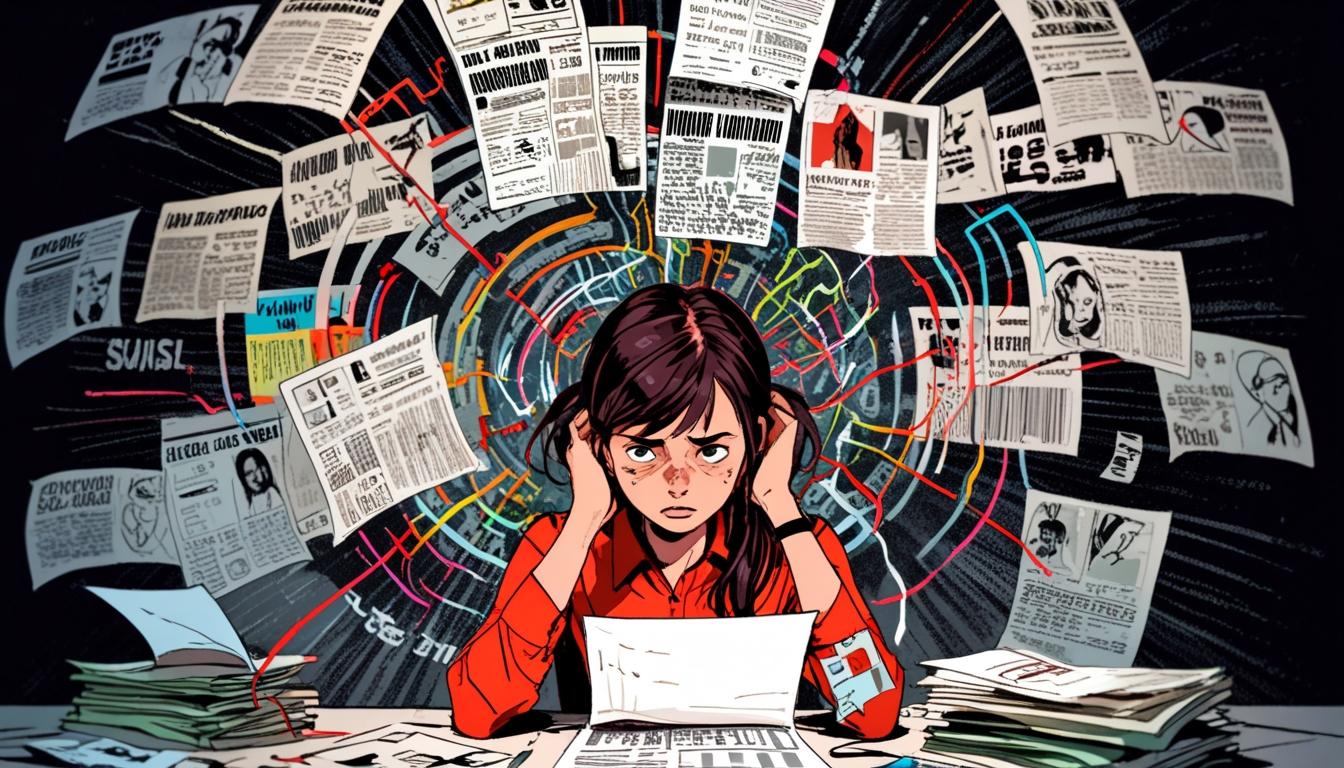The Complicated Landscape of Artificial Intelligence and Journalism
In an age where Artificial Intelligence (AI) has permeated almost every facet of our lives, a striking illustration of its limitations emerged recently when Tom Utley, a columnist at the Daily Mail, shared a bewildering revelation. In a moment of curiosity, he queried Google about his famous niece, Olivia Utley, only to receive the absurd reply that she is, in fact, his mother. This highlights a significant issue: while AI has been lauded as a transformative tool, it often fails to deliver accurate information, raising crucial questions about its reliability.
Utley voiced concerns that such errors might lead to unwarranted trust in AI technology. He noted that the ramifications of incorrect outputs extend far beyond familial relationships. For an ever-increasing segment of society, AI-generated information is fast becoming a primary source of knowledge, and if this information is misled or falsified, the consequences could be dire.
This concern is echoed by a global coalition of media organisations advocating for ethical AI use. The initiative, dubbed 'News Integrity in the Age of AI,' calls for AI developers to ensure transparency and respect for original content. This coalition includes notable entities like the European Broadcasting Union and the World Association of News Publishers. They are pushing for regulations that require explicit approval before AI systems can use news content to mitigate the risks of misinformation—a scenario that has grown more pressing as traditional media continue to navigate their own attrition in the digital age.
The challenges posed by AI are not limited to issues of accuracy; they also extend to concerns about copyright and the sustainability of journalistic professions. Experts have testified before various legislative bodies, including the U.S. Senate, highlighting how AI models exploit journalists' work without adequate compensation. Since 2005, the U.S. has witnessed a staggering decline in both the number of newspapers and professional journalists, a downward trend exacerbated by the rise of digital platforms. This has led to calls for legislative action that ensures fair compensation for news content used by AI systems, as exemplified by legal battles involving major news outlets like The New York Times.
Adding to these woes is the growing public scepticism regarding AI's role in news production. According to the Reuters Institute’s Digital News Report, a significant portion of global audiences express discomfort with AI-generated news, particularly on sensitive subjects such as politics. As misinformation continues to permeate the digital landscape—where experts predict AI-generated content could form an overwhelming majority of online material—legitimate concerns about distinguishing truth from falsehood arise. The potential for AI to amplify misinformation is not merely a theoretical risk; it’s a pressing reality that demands proactive measures.
Beyond the immediate impacts of misinformation, the technology also raises ethical dilemmas concerning the manipulation of public sentiment. Recent incidents of AI-generated videos and other content have demonstrated its potential for exploitation, notably in political arenas. Researchers have found that while some forms of AI-generated disinformation have garnered attention, its explicit influence on electoral outcomes remains relatively limited. However, the spectre of deepfakes and moderate levels of misinformation still create a complex environment that complicates public discourse.
Amidst these concerns, a backlash against the unchecked use of AI in news, culture, and creative industries calls for greater scrutiny. Reports of AI-driven mishaps in workplaces underscore the potential harm of poorly trained systems disseminating sensitive information, jeopardising professional integrity and trust. Furthermore, the existential threat that AI poses to numerous creative professions—by recycling and repurposing human-created works for profit—serves as a cautionary tale for future developments in AI legislation.
As the world grapples with the implications of AI, particularly in journalism, there’s an urgent need to foster media literacy among audiences and reconcile ethical dilemmas with technological advancements. Without a concerted effort to navigate these challenges, the future of information may teeter on the edge of a precarious abyss, marked by confusion, misinformation, and a loss of the human touch that has long characterised the art of journalism.
Reference Map:
- Paragraph 1 – [1], [4]
- Paragraph 2 – [2], [3]
- Paragraph 3 – [4], [3]
- Paragraph 4 – [5], [6]
- Paragraph 5 – [3], [6]
Source: Noah Wire Services
